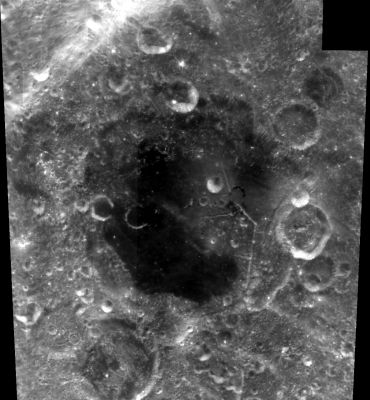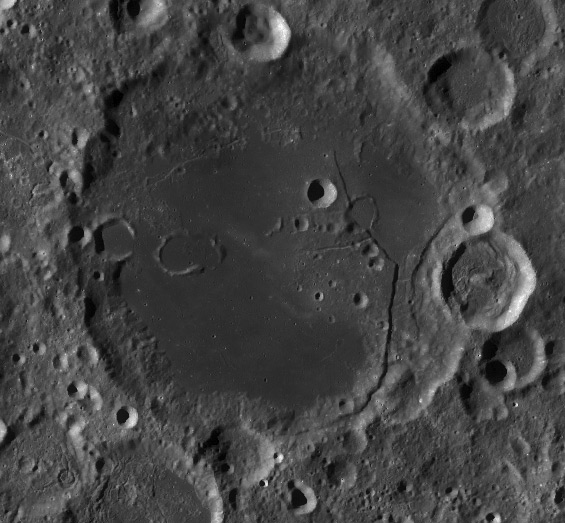Jules Verne
Contents
[hide]Jules Verne
| Lat: 35.0°S, Long: 147.0°E, Diam: 143 km, Depth: km, Rükl: (farside) |

Clementine

LRO-WAC
Note the remarkable fault'esque feature on the eastern part of Jules Verne's floor, and the handcuff-shaped shallow crater on the western part of its floor.
Images
LPOD Photo Gallery Lunar Orbiter Images Apollo Images
Maps
(LAC zone 118B1) USGS Digital Atlas PDF
Description
Description: Wikipedia
Additional Information
- Crater counts yield mare ages of 3.34 b.y. Haruyama, J. and others, 2008.
- Concentric Crater at 37°30' South/ 144° East (visible to southwest of Jules Verne, slightly northwest of Jules Verne P). This Concentric Crater is mentioned as "number 18" in C.A.Wood's original CC-list published in 1978.
Nomenclature
- Named for Jules Gabriel Verne (February 8, 1828 – March 24, 1905), a French author who pioneered the science-fiction genre. He is best known for novels such as Journey To The Center Of The Earth (1864), Twenty Thousand Leagues Under The Sea (1870), and Around the World in Eighty Days (1873). Verne wrote about space, air, and underwater travel before air travel and practical submarines were invented, and before practical means of space travel had been devised.
- Discovered in Lunik 3 imaging of farside and named in Atlas of the Far Side of the Moon and approved by the IAU in 1961 (Whitaker, p 232).
- This crater should not be confused with the nearside minor feature named Verne.
- Jules Verne fault (an unofficial name from D.Caes for the remarkable crack-like feature on the eastern part of Jules Verne's floor).
- Jules Verne's handcuff (a nickname from D.Caes for the curious handcuff-shaped shallow crater at the western part of Jules Verne's floor).
LPOD Articles
Bibliography